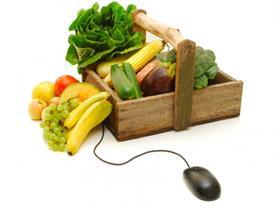
A new report from global agri-finance leader Rabobank has highlighted how a new era in online retailing will increasingly impact the fresh fruit, vegetable and floriculture supply chains.
Titled 'Wanted: E-daptable fresh produce suppliers', the report emphasises that just as tomorrow's shopper will buy groceries online, he or she will also buy fresh produce online - and highlights how suppliers that want to take advantage of this development will have to adapt to the specific requirements of the 'e-shelf'.
While total retail sales are stagnant, online grocery sales in western Europe are expected to double in the next five years, and looking further ahead Rabobank expects that in 2025 the share of online grocery shopping in total grocery shopping will be as high as 25 per cent.
The magnitude of the change will be compared to the rise of private labels in the 1970s and the rapid rise of hard discounters since the turn of the century, Rabobank predicted.
Several developments have indicated consumers' increasing willingness to buy fresh produce online, according to report author Cindy van Rijswick.
'For a long time, consumers were accustomed to choosing their own fruit and vegetables in the store,' she explained. 'Now, consumers are increasingly used to having their vegetables delivered to their doorstep, either via regular supermarkets and meal kit deliveries, or via specialised online fresh produce suppliers.'
Fresh produce suppliers that respond proactively to the online developments could cash in, according to Rabobank. The various online channels for fresh produce offer several opportunities, such as increased shelf space, the option of adding information about the product, active screen management, cross-sell opportunities and fresher products via a shorter supply chain.
At the same time, suppliers may face challenges from increased competition and complexity, as well as changes to impulse buying.



